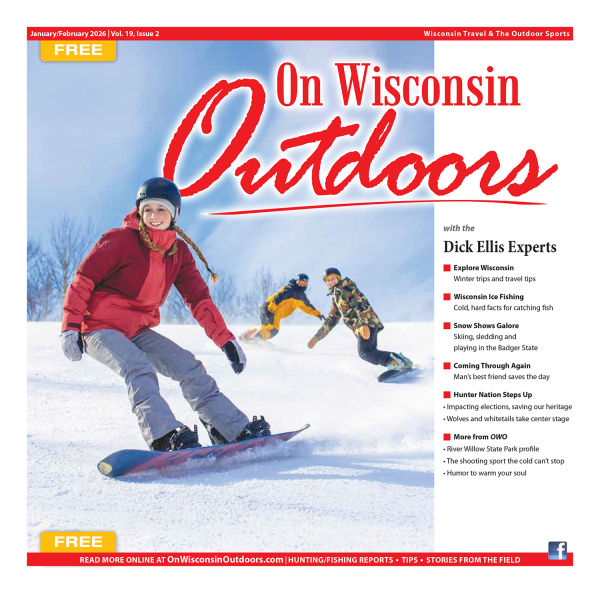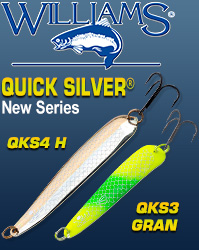The Lakeland Times articles on Tribal Spearing
“The following articles on the tribal spearing issue in northern Wisconsin was provided to On Wisconsin Outdoors courtesy of the Lakeland Times in Minocqua. To connect with the Lakeland Times or for subscription information, call 715-356-5236 or visit www.lakelandtimes.com.”
By Reporter Joe VanDeLaarschot
DNR: 197 Northwoods lakes to have one walleye bag limit
Oneida County with the most lakes of one walleye catch per day
Upon receiving annual tribal walleye harvest declarations from the Chippewa tribes for waters in the Ceded Territory covering the northern one-third of Wisconsin, DNR analysis indicates that of the 535 lakes named for harvest, 197 were named at a level that will result in a one-walleye daily bag limit for anglers.
Waters named at a one-walleye bag limit include the Three Lakes Chain, part of the Eagle Chain and a number of popular walleye fisheries in northwest Wisconsin.
Of the remaining 338 declared waters, 331 will have a two-walleye daily bag limit, and seven will have a three-walleye daily bag limit.
The changes in the bag limits come after the Lac du Flambeau Tribe recently voted to break its longstanding agreement with the state and hold their spear harvest totals at a level that would allow a three bag limit for commercial anglers.
According to the DNR’s website, 86 lakes in Oneida County will have a bag limit of one walleye per day. None will have a three bag limit.
Vilas County was impacted less by the DNR’s determination. Only two of the lakes there will be at the one walleye per day bag limit.
“The Chippewa tribes are acting lawfully within their treaty rights,” DNR Secretary Cathy Stepp said. “However, over the past 10 years, we have seen a maximum of 10 lakes declared at one time for one-walleye bag limits. This drastic increase in lakes named at a one-walleye bag limit is significant, unprecedented, and a challenge to long-standing partnerships.”
The number of lakes declared is similar to past years. However, the percent of these lakes declared at a one-walleye bag limit is much higher than in the past. Within the past 15 years no more than 10 lakes had been declared at a one-walleye bag limit in a single year, and that total was reduced to five lakes before spearing started.
Lac du Flambeau Tribal Chairman Tom Maulson said any claim that the tribe’s annual harvest has damaged the local fisheries is not true.
“I think if there is a problem with the fish population it is because sports anglers have over-fished,” Maulson said.
State reacts to tribe’s actions
The tribes do not always take as many fish as they declare. When that happens, angler bag limits on individual lakes are readjusted when spearing activity diminishes, based on the percentage of walleye actually taken.
“As part of this year’s declarations, the Lac du Flambeau Tribe has named 232 of their 233 total lakes at a two-fish daily bag limit. The lakes had previously been set at a three-bag limit as part of a longstanding Memorandum of Agreement between the DNR and Lac du Flambeau,” Stepp said. “Lac du Flambeau’s unprecedented change in declarations effectively terminated the 16-year agreement.”
Stepp said that because of the tribe’s actions the state is also being forced to take actions in response.
“As part of the agreement, the tribe received $84,500 from the state to maintain the three-walleye bag limit. They also received revenue generated through sales of snowmobile, ATV and fishing license sales on reservation,” Stepp said. “Based on the tribe’s breach of the agreement, the department has no choice but to withhold the payment and the license revenue.”
Lac du Flambeau Tribal President Tom Maulson said the actions taken by the state were not unexpected.
“We figured that would happen,” Maulson said. “We have to do what is best for our tribal members and they need to be able to have more fish. By going to a two-fish bag limit we are not doing anything different from what other tribes are doing.”
Maulson said the tribe’s decision to lower bag limits is “not being done as revenge for any other issues.”
“We have no vendetta because of our disagreements over mining and other issues,” Maulson said.
“Agreements are made to be broken and breaking it was not done in malice.”
Maulson said the bad economy means members of his tribe need to gather more food which means they need more fish.
“The economy has really caused an increase in gas prices, too, so tribal members will be able to spear closer to home and get more fish to feed themselves and their families,” Maulson said.
Stepp continued:
“Wisconsin’s strong walleye fishery and the tourism it produces are very important in northern Wisconsin. As Secretary of the Department of Natural Resources, sustaining our fishery is foremost in my priorities,” Stepp said.
Stepp said she remains committed to building on the successful partnerships the state and the tribe have expanded upon and “enjoyed together over my two years as DNR secretary.”
“However, I will stand up for state interests, including angler harvest opportunities and the benefits they bring to local economies,” Stepp said.
The public should be assured, Stepp said. the increased declarations do not endanger the fishery.
“The DNR manages the fishery and has developed a nationally-respected system designed to protect water bodies from overharvest,” Stepp said. “Over the next few weeks, DNR aims to work with the tribes in an effort to negotiate a reduction in their declarations. We have displayed a willingness to cooperate and negotiate with all of Wisconsin’s tribes, and we have many success stories that represent that partnership.”
Stepp said the state will continue to be available to work with the Chippewa tribes “for the proper management of our state’s abundant and important natural resources. All of Wisconsin’s citizens – tribal and non-tribal – expect and deserve that.”
Maulson said the tribe will continue to work with the state and the DNR on many issues.
“If some people feel the fish population is being damaged then let’s work together on a long-range plan and a study to see if that’s the case and what we can do about it together,” Maulson said. “We could do a study and develop a plan that could go for 10 to even 20 years out and we can do it together.”
Treaty background
As part of a 1983 federal Appellate Court decision affirming Chippewa off-reservation hunting, fishing, and gathering rights, the six bands of Wisconsin Chippewa set annual harvest quotas for off-reservation lakes in the Wisconsin Ceded Territory. As part of subsequent court agreements, the Department of Natural Resources reduces bag limits for recreational hook and line anglers in lakes declared for harvest by the Chippewa bands to assure the combined tribal and recreational angler harvest in a lake does not jeopardize the stability of that lake’s walleye population.
By Reporter: Joe VanDeLaarschot
LdF tribe votes to reduce walleye bag limit from three fish to two
Option to reduce daily bag limit to two fish wins over alternative by a single vote
Members of the Lac du Flambeau Tribe Thursday voted in favor of reducing the daily bag limit for walleye caught in the ceded territory in northern Wisconsin from three fish to two.
The vote, which was determined by a single ballot, will change an agreement the tribe has had with the Wisconsin DNR for the past 15 years to maintain a three-fish daily bag limit, according to Lac du Flambeau Tribal Chairman Tom Maulson.
Tribal officials said 68 tribal members voted in favor of an option that would have maintained the three fish daily bag limit. The option for having a two-bag limit won with 69 votes.
“It’s an opportunity for tribal members to have more fish,” Maulson said. “There’s sort of mixed feelings, mixed reactions on this because we’ve had an agreement with the DNR for 15 years.”
DNR Secretary Cathy Stepp said her office had talked to tribal representatives and were told that because the two-fish bag limit option was approved by just one vote the tribal council may debate among themselves as to whether or not they should continue the three-fish bag limit that “has worked so well for both the state and the tribe for the last 15 years.”
According to Maulson, the tribe decided it needed to take a hard look at the bag limit this year.
“We see there is fish aplenty out there ... yet we have hamstrung ourselves to a certain amount of fish in our area which the economics today are such we’re trying to get more fish in the surrounding area in the ceded territory so we don’t have to travel so far,” Maulson said. “Economically, look at what the gas prices are, they fluctuate and it’s hard to travel all over to Timbuktu to fish.”
Maulson said it’s “an opportunity to have roughly about 9,000 more fish than we’ve had in the past.”
According to Stepp, Maulson told her office that the tribal referendum “isn’t anything binding” and that the tribe had held the referendum “so they could get the temperature of tribal members on the issue.
“He said the tribal council will make the final decision,” Stepp said. “The vote difference was so close that the tribal council needs to discuss it more.”
Chairman: No impact on others
Maulson said he has no doubt the change in bag limits will have no impact on area businesses.
“It’s just like, if we were to take all the money the Lac du Flambeau Tribe makes and hold it and don’t go and buy anything in Minocqua or the surrounding area,” Maulson said. “So it shouldn’t have any impact and we shouldn’t mix the issue. There are already two bag limits out there. I don’t have any concerns that it will hurt anyone in the ceded territory.”
Maulson also said there’s the real possibility the tribal members won’t reach their total allowable harvest.
“If people were to really look at the numbers of the fish tribal members have taken, we’ve never taken all the fish declared in the ceded territory since we started,” Maulson said. “It’s been the same thing with the deer or different animals out there so we shouldn’t be on the radar on this. The people that are putting us up there are the non-Indian people that don't like it.
“People shouldn’t be all shook up about this because it is no different than what other tribes already take,” Maulson said.
Adjustment of angler bag limits
Angler bag limits are adjusted according to the percentage of the safe harvest tribes declare they will take during the springspearing season.
As the tribal harvest goal (a percent of allowable harvest) increases, angler bag limits are reduced. This is done to ensure that the walleye population is not over-harvested by the combination of spearfishing and recreational angling.
The tribes do not always take as many fish as they declare. When that happens angler bag limits on individual lakes may be readjusted based on the percentage of the safe harvest actually taken.
According to the Wisconsin DNR, a comparison of angler and tribal harvest from lakes surveyed shows that the angler harvest accounts for the majority of walleye harvested in the ceded territory.
Creel studies on Escanaba Lake in Vilas County suggest the sex ration of the walleye harvested by anglers is close to 50/50.
According to the DNR’s website, compromises between the state and the tribes are reviewed annually. If the tribe decides in any given year that they would like to increase their fishing take, they must provide a notice six months prior to the spearing season of their intent.
“There’s supposed to be a lot of things according to that agreement,” Stepp said. “We’re hoping that if the tribe goes this way and their final decision is to change to the two-fish bag limit that they would follow the guidelines in our agreement and give us the six month notice as required.”
Stepp said if the tribe were to follow the six-month notice requirement that would mean the new bag limits would not go into effect until 2014.









